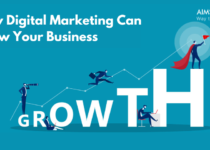What are the essential skills necessary to excel in a digital marketing course?
Digital marketing skills are the abilities and knowledge required to effectively plan, execute, and measure the success of digital marketing campaigns. Some key digital marketing skills include:
1.Data Analytics: Understanding data analytics is crucial for digital marketing as it allows you to measure the effectiveness of your campaigns and make data-driven decisions. Tools such as Google Analytics, Adobe Analytics, and Mixpanel can help you track website traffic, conversion rates, and other key metrics.
2.Customer Data Security and Privacy: With the rise of data breaches and cyber attacks, it’s important for digital marketers to understand how to protect customer data and comply with privacy regulations such as GDPR and CCPA.
3.Social Media Marketing Tools: Platforms such as Hootsuite, Sprout Social, and Buffer can help you manage and schedule social media posts, track engagement, and measure the success of your campaigns.
4.Search Engine Optimization and Marketing: Understanding SEO and SEM is crucial for driving traffic to your website and improving your visibility in search results. Tools such as Google Search Console, SEMrush, and Ahrefs can help you track your search engine rankings and improve your SEO.
5.Competitive Research: Keeping an eye on your competitors can help you understand what’s working for them, and identify opportunities for differentiating your own strategy. Tools such as SEMrush, Ahrefs, and SimilarWeb can help you track your competitors’ traffic, keywords, and backlinks.
6.Email Marketing Tools: Platforms such as Mailchimp, Constant Contact, and Campaign Monitor can help you create and send email campaigns, track engagement, and measure the success of your campaigns.
7.AI and Machine Learning: With the increasing use of AI and machine learning in digital marketing, it’s important for digital marketers to understand how these technologies can be used to improve targeting, personalization, and automation.
8.Communication: Strong written and verbal communication skills are essential for digital marketers, as they need to create compelling content and effectively communicate with clients and team members.
9.Storytelling: The ability to tell a story and create compelling narratives is an important skill for digital marketers, as it can help to engage and persuade audiences.
10.Curiosity: The desire for continuous learning and staying up-to-date with the latest trends and best practices in digital marketing is important for success in this field.
All of these skills are important for digital marketing and you should strive to gain a solid understanding of each. It is important to note that, as with any field, the specific skills required may vary depending on the industry and the job function.
How to Gain These Skills?
There are several ways to gain the skills necessary to excel in a digital marketing course:
- Read books, articles, and blog posts on digital marketing topics to gain a broad understanding of the field.
- Enroll in online courses or earn certifications in specific digital marketing skills, such as Google Analytics or Facebook Advertising.
- Get hands-on experience by working on digital marketing projects, whether through internships, freelance work, or creating your own projects.
- Join online communities or groups related to digital marketing to stay up-to-date on the latest trends and best practices.
- Attend digital marketing conferences or workshops to learn from experts in the field and network with other professionals.
- Practice using digital marketing tools and technologies by setting up and running your own campaigns, even if it’s just for fun.
- Study best practices for SEO and PPC advertising, and try implementing them on your own website or blog.
- Practice your writing and communication skills by creating blog posts, social media updates, and email campaigns.
- Leverage online resources, like tutorials, webinars, and forums, to gain more knowledge on the subject.
- Collaborate with others in the field, whether it’s through a study group, a mentorship program, or a digital marketing agency.
Understanding different marketing channel
Understanding different marketing channels is important in digital marketing as it allows you to effectively reach and engage with your target audience. Some common digital marketing channels include:
- Social Media: Platforms such as Facebook, Twitter, Instagram, and LinkedIn allow businesses to connect with customers and build brand awareness.
- Search Engine Optimization (SEO): Optimizing your website for search engines such as Google, Bing and Yahoo to improve your visibility in organic search results.
- Pay-Per-Click (PPC) Advertising: Platforms such as Google Ads and Bing Ads allow businesses to run advertising campaigns where they pay each time their ad is clicked.
- Email Marketing: Sending promotional or informational emails to a list of subscribers to build relationships and drive conversions.
- Content Marketing: Creating and distributing valuable content (blog posts, videos, infographics, etc.) to attract and engage your target audience.
- Influencer Marketing: Partnering with influencers on social media to reach a wider audience and gain credibility.
- Affiliate Marketing: Partnering with other businesses or individuals to promote products or services in exchange for a commission.
- Mobile Marketing: Reaching customers via mobile devices, such as text messages or push notifications.
- Native Advertising: Advertising that blends in with the surrounding content, such as sponsored posts on social media or promoted content on news websites.
- Video Marketing: Creating and distributing video content to promote your brand, products or services.
It’s important to note that different channels may be more effective for different industries and goals. Therefore, it’s important to carefully evaluate which channels will be the best fit for your business.
Curiosity (continuous learning)
Curiosity, or a desire for continuous learning, is an important skill for anyone in the field of digital marketing. The digital marketing landscape is constantly evolving, with new technologies, platforms, and trends emerging all the time. Staying up-to-date with the latest developments and best practices is crucial for success in this field.
Curiosity can help you to:
- Discover new opportunities: By staying curious and open to new ideas, you may discover new marketing channels, strategies, or technologies that can help you reach your target audience and achieve your marketing goals more effectively.
- Learn from others: By engaging with other professionals in the field and participating in online communities, you can learn from their experiences and insights, and gain new perspectives on digital marketing.
- Stay ahead of the curve: By continuously learning, you can stay ahead of your competitors and anticipate changes in the market, allowing you to make strategic decisions and adjust your marketing plans accordingly.
- Develop new skills: By constantly seeking out new information and learning new skills, you can improve your performance in your current role and open up new opportunities for career advancement.
- Build a strong professional network: By staying curious and networking with other digital marketers, you can build a strong professional network that will support you throughout your career.
In order to foster curiosity and ensure continuous learning, digital marketers can read industry publications, attend conferences, take online courses, and experiment with new tools and techniques in their work. It’s important to note that curiosity should be paired with critical thinking, as not everything new is necessarily better or relevant for a particular case.
So Guys Here some important Skills To learn Digital marketing.If you have any other questions, feel free to ask. Thank you….


